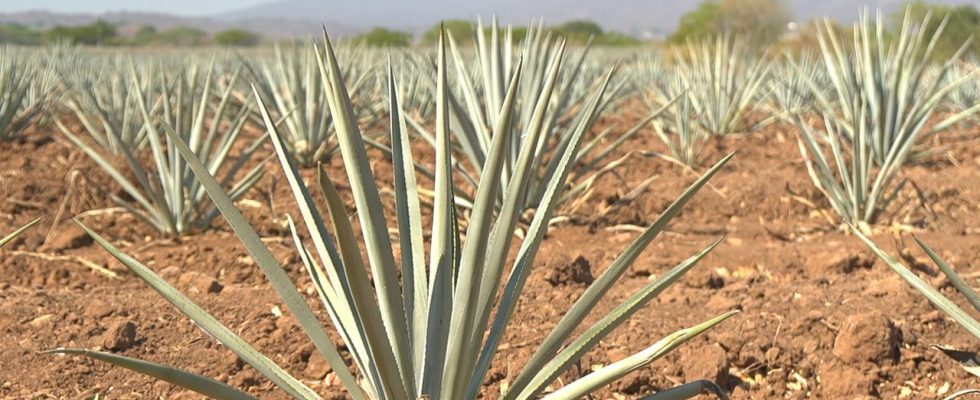Tequila exports are booming in Mexico. To meet demand, local farmers are planting agaves in huge monocultures, which are damaging to the environment. But there is a counter-movement.
Rubén Ravelero presents his pride and joy under awnings: mini agaves, just a few months old, grown from seed. Ravelero advises agave farmers like Benjamin Rosales, junior boss of the small tequila distillery Cascahuín. He wants to plant the agaves from the greenhouse soon in the field. “This is our future,” says Rosales.
What seems normal is a small revolution in the tequila business. Instead of producing more and faster, agricultural economist Ravelero advocates more slowness and sustainability in the tequila business. Not an easy mission, because the market is booming.
Mexico exported significantly more liquor to Europe last year than the year before. According to Mexico’s tequila regulator, export volume to Spain rose 90 percent, France 73 percent, and Germany 60 percent.
In Jalisco, Mexico’s booze region northwest of Mexico City, agave monocultures stretch to the horizon. And in the town of Tequila, which gives the agave distillate its name, world market leader Jose Cuervo has created an empire. Only agave spirit distilled from blue agave and in certain communities is allowed to become tequila. Cuervo’s factories produce up to 400,000 liters per day. A success story, but also a story of intoxicated commerce.
Tequilla is available in a wide variety of qualities – from cheap mass-produced goods to long-matured fine liquor.
Five years maturing process
Big industry sets a pace that doesn’t really suit the agave. Because the huge plant with the pointed leaves needs two things above all: time and patience. It has to mature for at least five years before the “Jimadores”, the harvest workers, knock it out of the ground with a kind of sharp spade.
It would take another three years for the plants to flower, be pollinated by bats and insects and form seeds. And that’s where the problem begins. To save time and because the juice after flowering is virtually useless for tequila production, agaves almost never flower.
Instead, farmers shorten the reproductive process. They clone agaves by cutting offshoots from the root that are identical to the mother plant. That’s good for business, but bad for the ecosystem, criticizes agricultural economist Ravelero. Round after round, the genetic diversity of the agave decreases. The monocultures become more susceptible to fungi and pests.
“The agaves have lost quality and genetic power because the same plant is always propagated.” Ravelero therefore supports a counter-movement that strongly advises the farmers to wait. At least some of the agaves should flower, form seeds from which strong and resistant agaves will grow. In the short term, this means that not all agaves can be turned into money. In the medium term, however, farmers could use the seeds to breed healthier and more resistant plants. “It’s about the future of agaves and tequila,” emphasizes Benjamin Rosales from Cascahuín.
commercialization a natural product
Support for the idea comes from a garage in Guadalajara, Jalisco’s capital. Pedro Jimenez Gurria has set up a tasting room here for lovers of agave brandy. He hardly ever serves tequila anymore. “Commerce has destroyed the natural product,” he says.
On the other hand, Gurria markets schnapps from smaller, alternative producers under the Mezonte label. He criticizes that mass consumption in the USA and Europe is leading to the exploitation of resources and land in Mexico. “The problem is greed“, says Gurrio. “Each year, producers want to make more profit instead of investing in healthier landscapes.”
In his view, the only way is to step on the brakes and export less. And consumers should pay attention to a label that now exists for more sustainable production. It is called “Bat Friendly” and is awarded to distilleries that allow five percent of their agave fields to bloom per harvest cycle, and thus operate in an insect and bat-friendly manner.
Benjamin Rosales would like to have the label for his tequila, but he hasn’t managed to do it yet. If he buys agaves from other farmers, he has to do some convincing. Most want to harvest as much as possible and often do not think about the plant of tomorrow. “But we want to change that slowly, for the love of the product,” says Rosales. They hope to turn things around. For healthier agaves, for tequila and for their own future.

